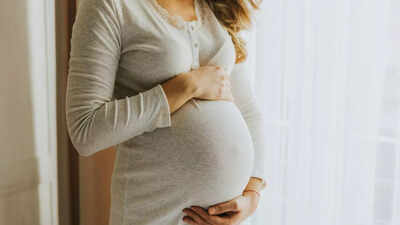ARTICLE AD BOX

Recovering from childbirth is challenging, but new research suggests that women who undergo C-section deliveries may face even greater hurdles. According to a study presented at the ANESTHESIOLOGY® 2025 annual meeting, mothers who gave birth via cesarean section are more likely to experience severe pain and sleep disturbances in the months following delivery.
The research, which included interviews with new mothers and analysis of a national insurance database of over 1.5 million births, found that C-section mothers were 16% more likely to receive a diagnosis of a sleep disorder compared to those who had vaginal births. Experts emphasize proper pain management and healthy sleep habits to support recovery and reduce risks like postpartum depression and fatigue.
How C-sections affect pain and sleep
The study revealed that mothers who underwent C-sections reported much higher rates of severe pain that interfered with daily activities and sleep.
In interviews with 41 new mothers, more than two-thirds of C-section patients, both planned and unplanned, described intense pain, compared with just 8% of women who had vaginal deliveries. These disruptions to rest and mobility can make the postpartum period more difficult and affect overall wellbeing.Researchers also examined a national insurance database of more than 1.5 million births between 2008 and 2021.
The findings showed that women who had C-sections were 16% more likely to be diagnosed with a sleep disorder within a year after giving birth. Sleep issues included insomnia, sleep deprivation, and obstructive sleep apnea, highlighting the broader impact of surgical delivery on postpartum health.
Tips for managing pain and improving rest
Experts advise new mothers, particularly those recovering from C-sections, to address pain early and prioritize sleep.
Strategies include light physical activity when possible, resting when the baby sleeps, avoiding caffeine and alcohol later in the day, and winding down before bed with calming routines such as baths or deep breathing exercises. Effective pain management not only improves sleep but can also reduce the risk of postpartum depression and support better emotional and physical recovery.
What mothers should know
About one-third of births in the US are C-sections, and awareness of these risks can help women plan for recovery. Dr. Moe Takenoshita, lead author of the study, recommends discussing sleep or pain problems with a physician who can provide guidance and refer to specialists if necessary. Understanding that C-section deliveries may lead to more severe pain and sleep disruptions empowers new mothers to take proactive steps to protect their health and wellbeing.

 6 hours ago
3
6 hours ago
3









 English (US) ·
English (US) ·